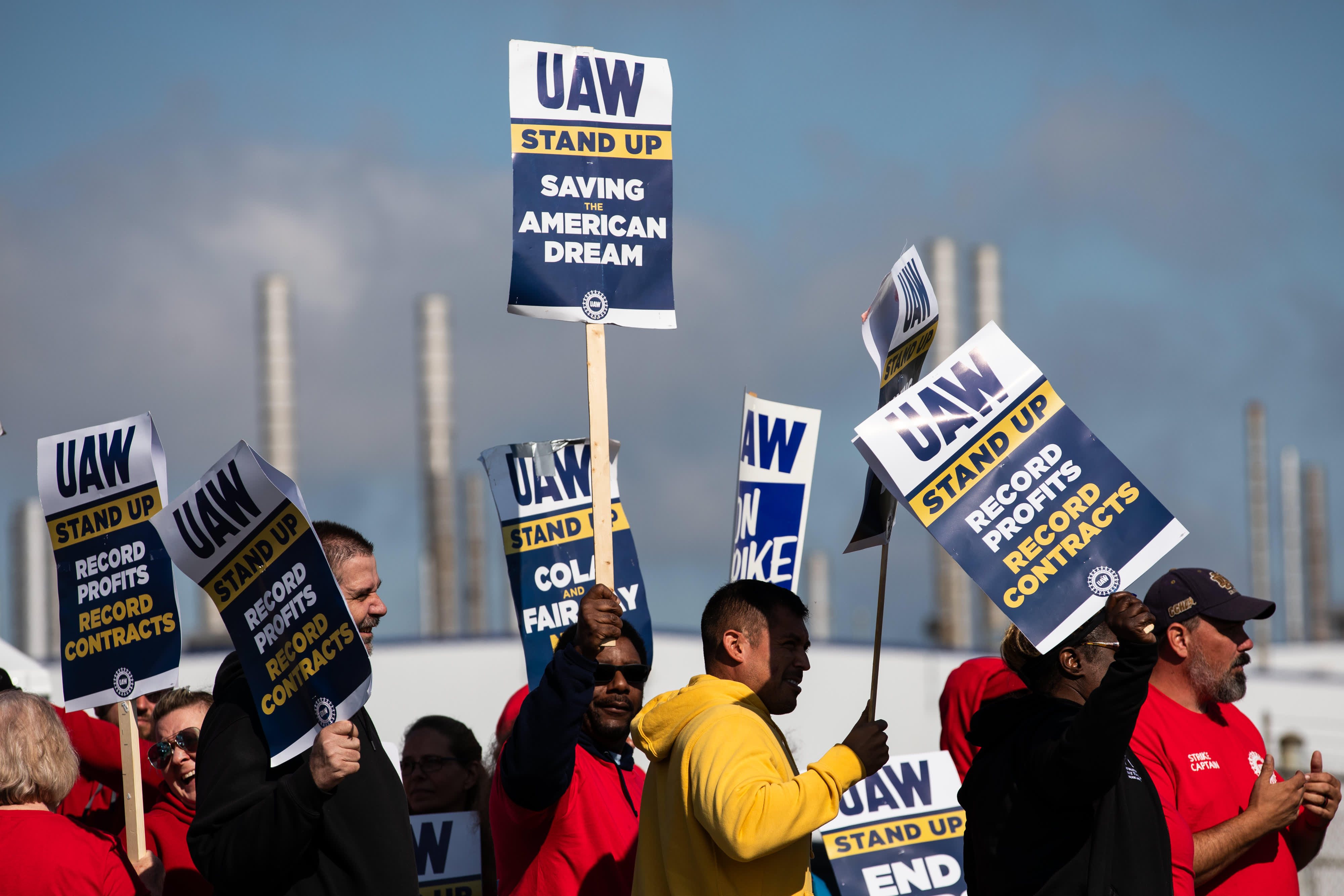
The auto workers’ strike is the latest in a series of labor-management conflicts that economists say could start having significant growth impacts if they persist.
So far, the United Auto Workers stoppage has impacted just a small portion of the workforce with limited implications for the broader economy.
But it is part of a pattern in labor-management conflicts that has resulted in the most missed hours of work in some 23 years, according to Labor Department statistics.
“The immediate impact of the auto workers strike will be limited, but that will change if the strike broadens and is prolonged,” Ian Shepherdson, chief economist at Pantheon Macroeconomics, said in a client note Monday.











